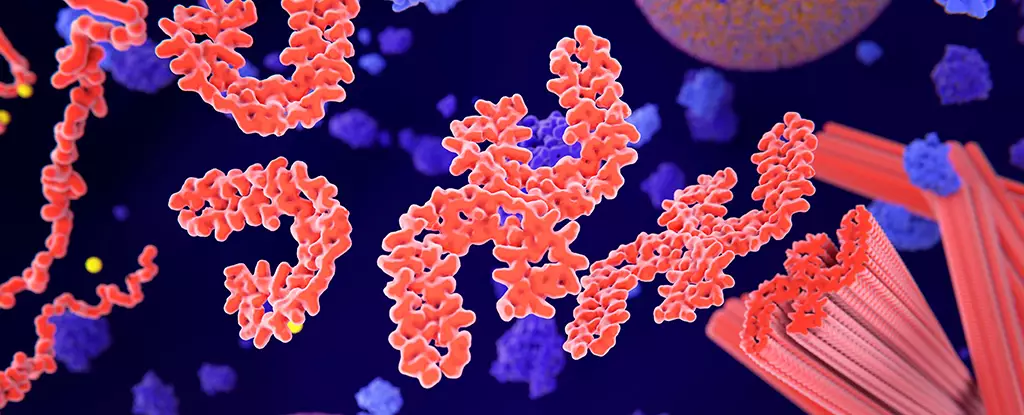Alzheimer’s disease, a debilitating neurodegenerative condition, profoundly affects the lives of millions. Characterized by the presence of amyloid plaques and tau protein tangles, this disorder leads to significant neural dysfunction. As the population ages, the urgency for effective interventions grows stronger. Despite decades of research, existing treatments primarily focus on symptomatic relief rather than addressing the underlying pathology. However, a breakthrough study introduces RI-AG03, a drug that may offer hope by selectively targeting hazardous tau protein aggregates associated with Alzheimer’s.
RI-AG03 signifies a novel approach in the pharmacological landscape aimed at alleviating neural degeneration caused by Alzheimer’s. This peptide inhibitor was designed using cutting-edge computational biology to specifically target the tau protein, which plays a crucial role in maintaining neuronal stability when functioning correctly. Yet, in Alzheimer’s pathology, tau proteins misfold into toxic aggregates known as fibrils, disrupting neuron function.
The international research team led by neuroscientists Amritpal Mudher has identified two key regions of tau proteins, often referred to as “hotspots,” essential to the aggregation process. These regions behave akin to a zipper, contributing to the problematic clumping that underlines tau pathology. RI-AG03 emerges as a pioneering treatment because it can inhibit aggregation at both sites, reducing the formation of tangles and preserving neuronal integrity.
Initial results from studies on fruit flies and human cell models are promising. In particular, the lifespan of fruit flies subjected to RI-AG03 exhibited a remarkable improvement, extending by as much as 35 percent. Such outcomes not only highlight the potential efficacy of this drug but also reinforce the importance of using simple model organisms in early-stage drug testing. The paradigm continues to evolve as researchers harness insights from these models to inform clinical approaches.
The study accentuates more than just psychological factors; it underscores a critical biological mechanism that underlies cognitive decline. This dual-targeting capability of RI-AG03 sets it apart from existing aggregation inhibitors, which often lack specificity and lead to unwanted side effects due to their broad target profiles.
One of the most compelling aspects of RI-AG03 is its precision in targeting tau protein without adversely affecting the surrounding neurobiological environment. Current aggregation inhibitors sometimes inadvertently disrupt the activity of other proteins, leading to collateral damage significant enough to render therapies ineffective. As Anthony Aggidis, another researcher involved in the study, points out, the design specificity of RI-AG03 significantly mitigates such risks. This tailored approach offers the tantalizing possibility of harnessing tau’s beneficial roles while effectively blocking its pathological forms.
The next phase for RI-AG03 entails extensive testing on mouse models, an essential step before advancing to human clinical trials. The track record of tau-specific therapies in clinical settings has been mixed; many promising candidates in animal models have ultimately failed to demonstrate substantial benefits in human patients. Nonetheless, the promise showcased by RI-AG03’s innovative mechanism of action may indicate a pathway toward successful therapeutic applications.
While the anticipation builds around RI-AG03, it is imperative to maintain a measure of caution. The road from bench to bedside is fraught with challenges, reflecting the complexities of translating preclinical successes into real-world medical treatments. Research efforts continue to shed light on the fundamental processes of Alzheimer’s and refine potential therapeutic avenues.
RI-AG03 represents an essential advance in the strategy towards combating Alzheimer’s disease. The compound’s ability to target dual sites on tau proteins heralds a new era of neuropharmacology aimed at combating the complex mechanisms of neurodegeneration. It is vital for researchers to persist in honing this promising treatment, for even incremental advancements can hold profound implications for those affected by Alzheimer’s disease. The journey toward effective Alzheimer’s therapies is ongoing, but RI-AG03 has set the course toward a more hopeful future.

